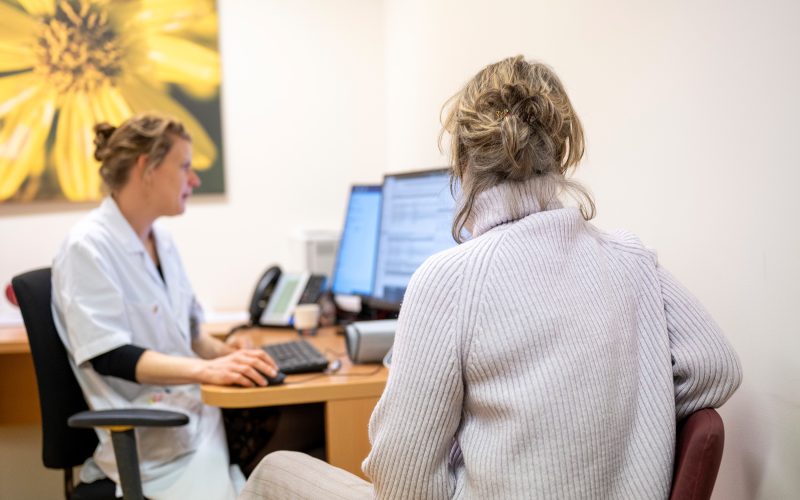UMC Utrecht is involved in five of the eleven projects that have been awarded funding through the National Roadmap for Large-Scale Research Infrastructure (GWI) by the Dutch Research Council (NWO). Together with our partners, we are contributing to the development of the infrastructure needed for innovative and future-oriented research. In one of the projects – an initiative to develop an MRI system that can scan the human body upright and in motion – UMC Utrecht is the coordinating lead.
The total investment amounts to 301 million euros. These funds are used to develop facilities that are widely accessible to researchers and crucial for scientific breakthroughs, including in the fields of health and healthcare.
The five projects involving UMC Utrecht are:
Medical imaging only captures the human body in a static, horizontal view, which doesn’t reflect the forces and function that occur during everyday activities like standing or exercise. BioMotive, with professor Nico van den Berg as the main applicant, aims to revolutionize this with an advanced MRI infrastructure that can scan the body upright and during movement. This will allow us to see how muscles, bones, and even the heart behave under real-life conditions, such as during exercise. By applying advanced MRI techniques, BioMotive enables real-time visualization of internal forces and physiological processes, providing deeper insights into conditions of the muscles, digestion and blood circulation influenced by posture and movement.
Read the detailed article about BioMotive here.
Imaging inside living beings is important to understand how life develops, how healthy bodies work, and how diseases begin and progress. This demands specialized equipment and knowledge. AMICE will develop such techniques and bring them into a nationwide preclinical infrastructure. This will help researchers acquire more information. In addition, AMICE will promote re-use of images to increase efficiency in science. Through this AMICE will help Dutch life scientists revolutionize their research with unique and innovative imaging techniques and to stay at the top of the international science community.
Read the detailed article about AMICE here.
The neurotechnological revolution: smart devices to read out and modulate brain activity. In 2023 UNESCO declared that we are at the threshold of a new revolution: neurotechnology. This emerging field develops devices that interact with neural systems to read out brain signals and/or alter brain activity. Neurotechnology offers novel means to better understand the brain, but also unlocks innovations to treat brain disorders. Dutch neurotechnology has made important steps, but is in need of far-reaching integration. EBRAINS-Neurotech will create a cohesive infrastructure for users developing smart materials for brain-machine interfaces, testing brain implants and designing computer models to better understand how these interfaces influence brain activity.
Read the detailed article about EBRAINS-Neurotech here.
A national infrastructure to resolve life’s secrets at the molecular level. Understanding and designing molecular structure is core to science and technology. Electron microscopy (EM) enables high-resolution imaging of biological samples to see molecules at the atomic level and visualize them in 3D in cells and organs. To keep the Netherlands at the forefront of this revolutionary field, a national infrastructure is created, integrating the latest innovations in cryo-EM and volume EM. The infrastructure will offer users tools for cutting-edge sample preparation, data acquisition and analysis, train and expand the EM community in the Netherlands, and pave the way for new discoveries and scientific advances in medicine and technology.
Read the detailed article about EMPower here.
The Netherlands Cohorts Consortium (NCC) brings together health data from almost half a million Dutch people. These data will be used to conduct ground-breaking research to better understand the causes of chronic diseases such as diabetes, cardiovascular disease, dementia and depression, and reasons why these are occurring at increasingly younger ages. NCC will build a state-of-the-art infrastructure, also for future data collection, with excellent IT facilities for joint data analysis, while guaranteeing the privacy and safety of the data. By combining the data, we will gain valuable insights into how to prevent these diseases and promote longer and healthier lives.
Read the detailed article about NCC here.
Read more about the GWI roadmap (NWO website)